Can You Get an FBI Background Check Done Online?
Yes, the FBI does have an online portal to request a rap sheet or background check. Agencies that conduct official FBI background checks can also submit requests online for expedited results.
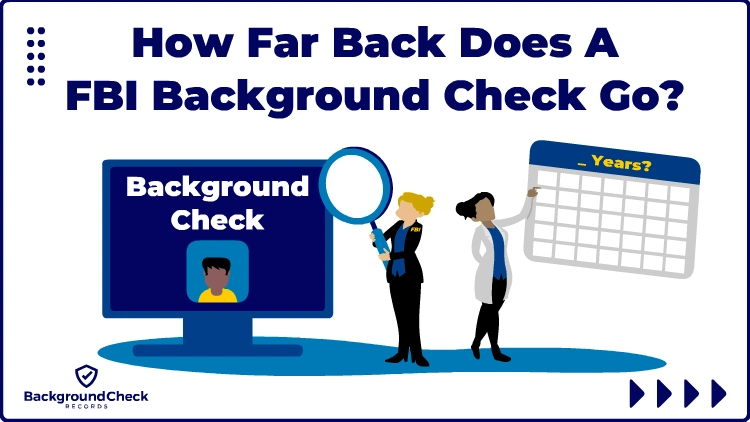
Table of Contents
One of the most extensive background checks that a person can undergo is an FBI screening, and it typically covers a period of 7 years, but can extend indefinitely in certain cases.
This can be a serious matter for some individuals since the FBI conducts over 20 million firearms checks alone each year and each can impact a person’s right to purchase or possess a firearm or obtain occupational licensure that involves public trust, or local, state or federal government employment. Plus, depending on the charge and jurisdiction, some charges will
Fortunately, this free guide will explain how many years back an FBI background check goes, how to get an FBI background check done online, via mail and through an expedited process, as well as provide the knowledge, tools and skills to prepare for what may appear.
To obtain a copy of your own FBI background check report, simply run a free search so you can determine if old charges are still on your record, and how to proceed from there.
When questioning how far back does a FBI background screening cover it’s important to note that not all FBI background checks are the same, and the length of the check is determined by the position or license being sought or other reason for the screening, the state in which the request originated, and the agency or individual requesting the report.
Therefore, we’ll cover how far back FBI screenings go for various purposes.
Firearms checks are performed daily by the FBI, but there is no limit on the lookback period for a firearms background screening.
Therefore, if there is any criminal conviction on a person’s record that would prevent them from purchasing a handgun or rifle, it will show up on an FBI screening regardless of how old the record is.
The Gun Control Act of 1968 did not place a limit on how far the screenings could go.
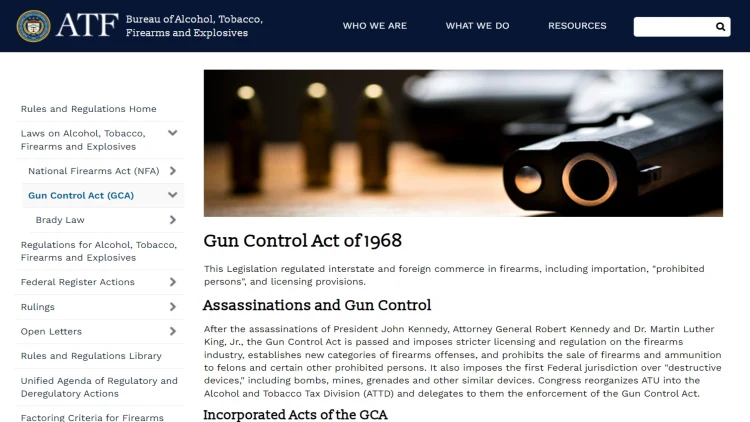
This law was later enhanced by the Brady Handgun Violence Prevention Act, commonly called the Brady Bill, which requires background checks for firearms purchases and transfers and can impose a five day waiting period for a person to become a licensed gun owner if there is not an alternative in the state for screening individuals that wish to purchase a handgun.
Also, the Brady Bill does not put a limit on how far back the FBI can search when doing a background check.1
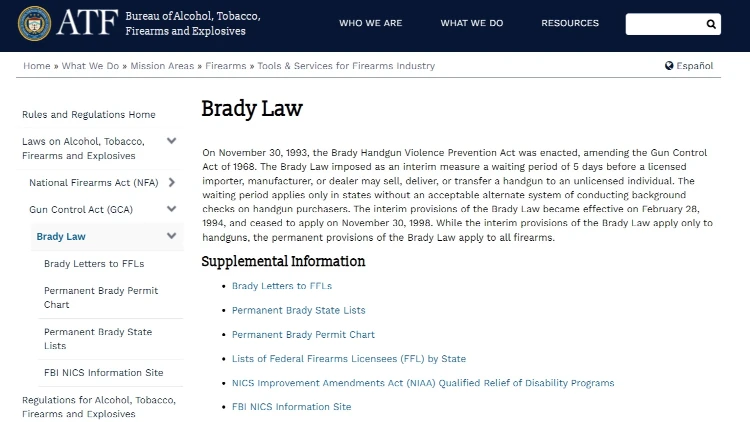
Ultimately, an FBI background check can who criminal records indefinitely depending on the circumstances surrounding the reason for the search, but there are some restrictions states can impose on how far a background check can look or the look back period, and what can be revealed in a screening even when it includes an FBI fingerprint-based, nationwide check.
When FBI background checks require a review of a person’s credit history in addition to criminal convictions or charges, the Fair Credit Reporting Act (FCRA) limits the lookback period for credit reports to seven years (10 years in the case of certain bankruptcies) and non-convictions to a seven-year period (except in cases where the position pays more than $75,000 a year, in which case there is no seven-year rule application).2
Because of this seven-year standard established by the FCRA, a few states have adopted similar look-back limits, sometimes called statutes of limitation, on background checks performed in these states. The list below are the states that currently limit a FBI background check to seven years (10 years for bankruptcies):
The other states do not place a lookback limit on criminal convictions, so a FBI background check can go back indefinitely and show all adult convictions that have not been sealed or expunged by the courts.
Similarly ban the box laws may limit when an agency or organization can request a FBI background check but do not typically place limits on how far the results can span.
Positions that require a security clearance (either secret or top secret clearance) have their own lookback period as well. Secret clearance investigations by the FBI typically span a five year lookback period and include a credit history and interviews with individuals that are familiar with the subject.
Top secret clearance FBI background checks can span 10 years and are much more comprehensive than a secret clearance check, but also include interviews and a deeper-dive into a person’s life.4
Other high-level positions such as executive positions in banking, financing, or other vital services are not limited to the seven-year lookback period for FBI background checks because these positions carry a greater responsibility to the public.
These background checks can span 10 years or more depending on the type of position and the agency or organization requesting the screening.5
Law enforcement officers can also apply for security clearances and submit to an FBI background check if their regular duties routinely involve working with federal agencies where clearance will help the officers perform their official duties with these screenings going back indefinitely. Law enforcement or public safety employment screenings are not limited to lookback periods due to the nature of the position.
The bottom line is, the extent a FBI background check spans depends on a number of factors and can range from seven years for most employment screenings but can span a person’s entire lifetime in states that do not impose lookback periods.
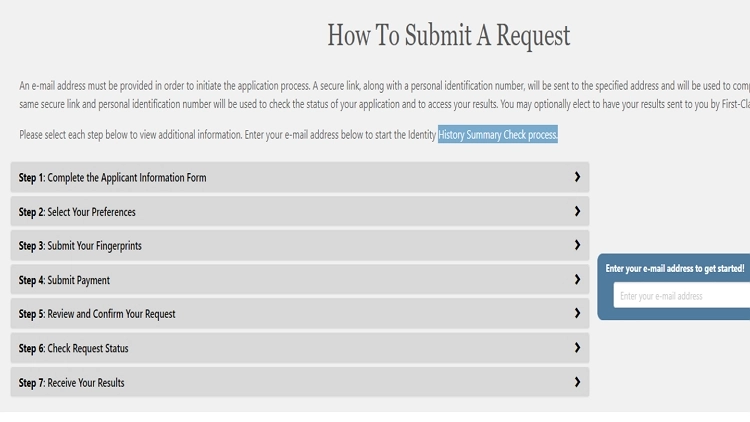
Also, some positions require a longer screening window, such as security clearance or c-suite positions, which can span ten years. What is revealed in the report also depends on how much information the agency or company needs and the reason for the search.
Many people wonder what exactly shows up on a FBI background check. In this section, the information that is typically revealed is outlined to remove the mystery from the FBI screening.
The main reason most employers or licensure boards request a FBI background report is to see if a person has been convicted of any disqualifying (criminal) offenses (which will be discussed in detail below); however, that is not all that can show up on the report.6
The list below shows the items that typically appear on a FBI background check with an explanation of why it is important to the overall report:
As previously stated, however, the primary reason many agencies or organizations request a FBI background check is to look for disqualifying offenses, sometimes simply referred to as disqualifiers.
Disqualifiers are criminal offenses that automatically exclude someone from consideration for a position, varying based on the nature and responsibilities of the job. Dropped charges can appear on an FBI background check.
The table below outlines common disqualifiers and when they typically apply:
While not all felony convictions are automatic disqualifiers, certain criminal convictions (and in some cases charges) can automatically exclude someone from a position or from obtaining a professional license. These felonies include:
This applies to positions or licensing consideration in the fields including, but not limited to the ones below:
As with felony convictions, not all misdemeanor convictions are disqualifiers but some can prevent a person from being hired when disclosed in a FBI background check. These include:
This applies to positions or licensing consideration in the fields including, but not limited to the ones below:
Certain positions require a person has never been charged with a criminal offense, and the presence of charges (regardless of disposition) can be an automatic disqualifier.
This typically involves positions that require a security clearance and are necessary for national security such as:
Executive level positions or those involving national security often require the applicant or subject to have a clean credit history. Disqualifiers can include:
Credit history is often included in the following FBI screenings:
Positions that require security clearance or a deep-dive into a person’s past may also include interviews with family, friends, associates, coworkers, educators or any others familiar with the individual. Disqualifiers in this category could be:
While these are not automatic disqualifiers, they can lead to denial of clearance which can impact a person’s position.
Interview history is often included in the following FBI screenings:
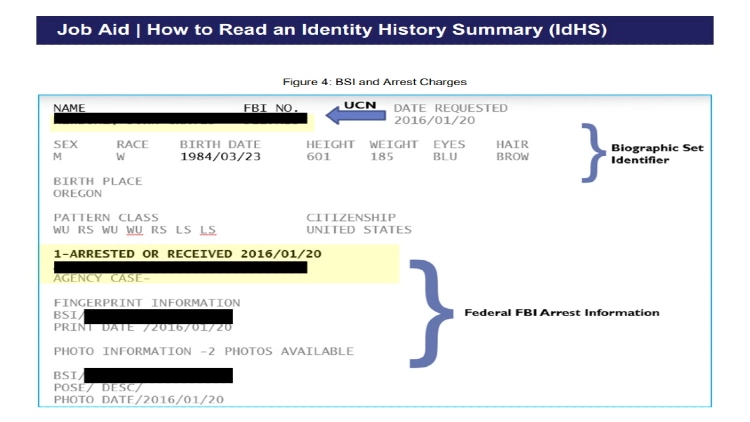
The process for completing a FBI screening, and how it is used varies from situation to situation. All FBI screenings include fingerprinting to verify identity of the person being screened, and to use fingerprints as means to connect with local law enforcement for booking/arrest information.
Because fingerprint cards submitted to the FBI become property of the agency, and therefore the United States government, storage and destruction of these records is subject to the National Archives and Records Administration (NARA) guidelines that govern all federal agency records.
NARA establishes which records are considered permanent (meaning they are never destroyed and become part of the national archives), and which are temporary (meaning they can be destroyed on a schedule set by NARA based on the type of record and its importance in the daily operations of a federal agency).
Fingerprint cards maintained by the FBI are stored in an electronic filing system called the Next Generation Identification System (NGI) which has safeguards to protect the personally identifying information (PII) of the subject in encrypted format. The system can only be accessed by authorized users with a need-to-know basis.7
NARA has established that FBI fingerprint files must be stored for 110 years or for seven years following the verified death of the subject, at which time the records can be destroyed. Destruction of records must make them completely unrecognizable and unrecoverable.
Only fingerprints that are considered of significant national importance are considered for permanent record status.8 Because the FBI stores fingerprints for such a long time, the return of background checks can be more streamlined to support the agencies that request screenings.
A fingerprint-based background check, often called a level 2 screening, is more comprehensive than a level 1 check but not as thorough as a level 4 check. Level 2 is the most common type of employment background check conducted by the FBI and is also used for non-profit background checks for volunteers.
A level 2 screening is also somewhat different from a level 3 background check. The amount of time required to return a FBI background check for a level 2 screening varies from several days to weeks depending on the amount of information requested.
For example, if an agency simply needs identity verification and a nationwide criminal record search, the results can be returned in 1 to 3 days upon receipt of the fingerprint card and request. Deeper dives can take up to 2 to 4 weeks to provide results.
It typically takes 30 days to complete a level 2 background check.9
Similar screenings for licensure can take the same amount of time, and many professions that require a license to perform duties have mandatory nationwide, fingerprint-based background screenings to look for any disqualifying offenses.10
The most extensive checks conducted by the FBI take six to nine months for top secret clearance, and 45 to 65 days for secret clearance to complete because this involves not only checking state and national criminal reports/databases, it can also include interviews with individuals familiar with the subject. This is known as the vetting process and can also include interviews with individuals familiar with the subject and a credit history check.11
While most FBI screenings are returned within a few days to weeks, there are some issues that can cause a delay in receiving the report. Some of the common delays are in the list below:
Delays can and do happen, so it is important to let the subject know that the amount of time to complete the screening can vary based on the factors above, and encourage the applicant to make sure all information on the application or consent form for a screening is correct and complete to allow the background check to proceed.
There are a few methods to getting a FBI background check completed, depending on the reason for the screening and how it is requested.
For example, the process for a firearms screening is different than that for an employment check or for personal reasons.
The process for each is outlined below, and although it’s not a free criminal background check, it’s worth the price to determine the coverage of an FBI background screening and what appears on your personal record.
One of the more common FBI screenings is the NICS background check used to screen individuals wishing to purchase a firearm. The federal government requires licensed firearms dealers, called Federal Firearms Licensees (FFLs), to conduct a National Instant Background Check before completing the purchases.
As the name implies, this record check can be done electronically or over the phone with almost instant results. If there is a delay with the system, such as the system is down, the results can take up to three days or more.12
The table below outlines in which states the FFLs contact the FBI for all firearms checks, which ones go strictly through state law enforcement, and which ones have shared responsibilities for background checks:
| FFLs Contact FBI for All Firearms Checks | FFLs Contact State Agencies Only for Firearms Checks | FFLs Use State Sources and FBI for Firearms Checks |
| Alabama Alaska Arizona Arkansas Delaware District of Columbia Georgia Idaho Indiana Iowa Kansas Kentucky Louisiana Maine Massachusetts Michigan Minnesota Mississippi Missouri Montana New Mexico New York North Dakota Ohio Oklahoma Rhode Island South Carolina South Dakota Texas Vermont West Virginia Wyoming |
California Colorado Connecticut Florida Hawaii Illinois Nevada New Jersey Oregon Pennsylvania Tennessee Utah Virginia |
Maryland Nebraska New Hampshire North Carolina Washington Wisconsin |
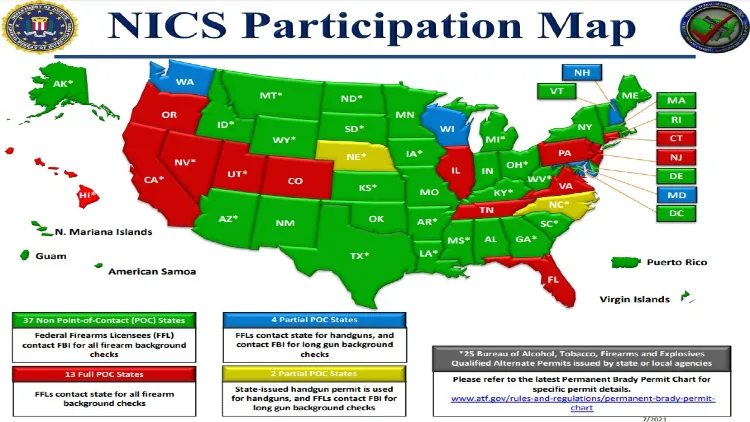
A firearms screening is completed as follows:
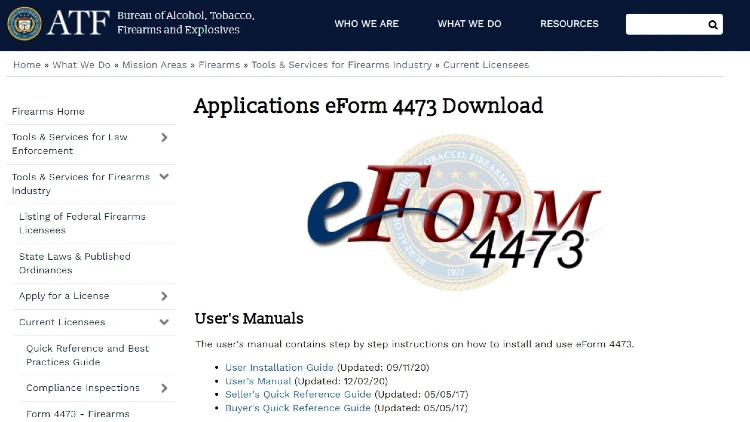
When screenings are being completed as part of employment obligations, the agency that requires the background check includes the necessary screening forms as part of the employment paperwork (either in the application or as part of the on-boarding form once a position has been conditionally offered).
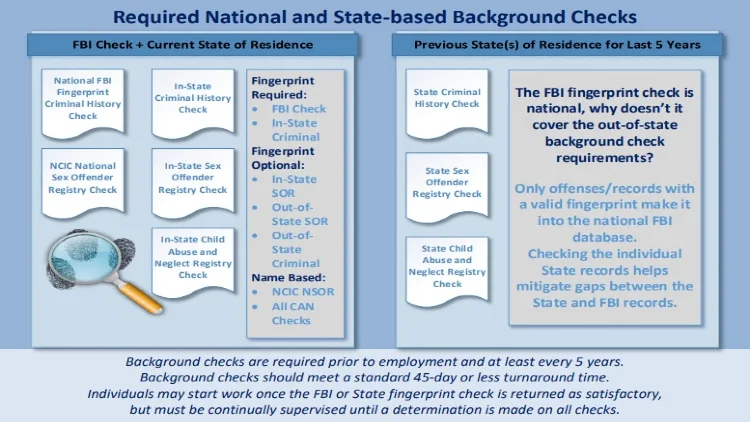
Fingerprinting can be done by the agency requesting the report (such as a law enforcement or government agency) itself or through approved vendors called channelers discussed below.
The Freedom of Information Act allows individuals to request a copy of their FBI rap sheet or report to see what shows up on a nationwide background check. Anyone has the right to request their own rap sheet; however, consent of the subject is required if requesting a rap sheet on someone else.
Running a personal background check can help someone prepare for a potential failed background check after a job offer has been made, and it can also reveal any criminal charges filed against them.
There are three ways to request a rap sheet through the FBI as outlined in the table below:
To make obtaining a rap sheet easier, there is an online portal that can be used to request a personal record. Do the steps listed here:
The FBI will run the search and send the results using the preferred notification method.
Individuals also have the option to submit the application and fingerprints via mail. This method can take up to 4 weeks to get results. The steps to do a mail in request are below:
The mailing address for this type request is:
Federal Bureau of Investigation
Criminal Justice Information System
Summary Request (Rap Sheet)
1000 Custer Hollow Rd
Clarksburg, West Virginia 26306
An FBI approved channeler is a commercial organization that has been granted the authority to submit a rap sheet request on behalf of the subject, and to provide the results to the subject once they are available. To find an approved channeler, do the following:
The channeler will notify the subject when the report is available.
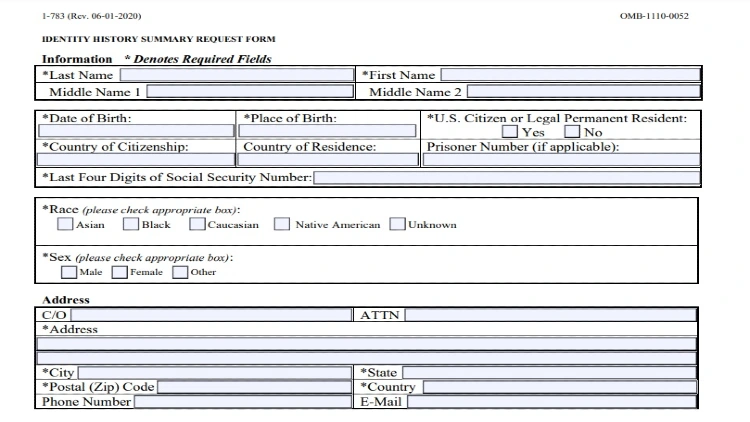
These methods can take a few days to a few weeks, but sometimes there is a need for a very rapid turnaround in getting a FBI background check.
An expedited FBI background check can facilitate the hiring process or may be necessary for other purposes such as adoptions or obtaining security clearance.
Here are some ways to get an expedited FBI background check:
Once the request has been submitted, it is a matter of waiting until the results are available and can be accessed.
Once a person has the results of their FBI background check, they are in a better position to deal with any potential negative impacts, see how far the screening goes back and get an overall picture of what may or may not need additional attention.
The method of receiving results depends on how they were requested and is outlined below:
Being subject to a FBI background check can be intimidating because the subject may have past criminal records or other disqualifications, but it doesn’t have to be. This free guide can help individuals navigate the process and provides information on how far back an FBI background screening covers.
Yes, the FBI does have an online portal to request a rap sheet or background check. Agencies that conduct official FBI background checks can also submit requests online for expedited results.
A USCIS check is performed on someone seeking a green card or citizenship status, and can take up to 12 weeks to complete once fingerprints have been taken and submitted, but the average turnaround is six to eight weeks.
Because FBI screenings are nationwide searchers, they are commonly used to vet (or check out) applicants for many positions.
A FBI rap sheet costs $18.
1 Brady Law | Bureau of Alcohol, Tobacco, Firearms and Explosives. (n.d.). ATF. Retrieved January 13, 2023, from <https://www.atf.gov/rules-and-regulations/brady-law>
2 Fair Credit Reporting Act 7-year rule violations can be damaging | Consumer Justice Center P.A. (2019, June 21). Consumer Justice Center. Retrieved January 13, 2023, from <https://www.consumerjusticecenter.com/blog/2019/06/fair-credit-reporting-act-7-year-rule-violations-can-be-damaging/>
3 Does Your Criminal Record Clear After 7 Years? (2022, June 10). Her Lawyer. Retrieved January 13, 2023, from <https://herlawyer.com/criminal-record-clear-after-7-years/>
4 Before You Apply: Understanding Government Background Checks – Yale Law School. (n.d.). Yale Law School |. Retrieved January 13, 2023, from <https://law.yale.edu/student-life/career-development/students/career-pathways/public-interest/you-apply-understanding-government-background-checks>
5 Huhman, H. (2021, August 25). Background Checks: What Employers Will Discover. Glassdoor. Retrieved January 13, 2023, from <https://www.glassdoor.com/blog/background-checks-employers-discover/>
6 Anthony, J. (2020, December 7). What Shows Up on an FBI Fingerprint Background Check? AddictiveTips. Retrieved January 13, 2023, from <https://www.addictivetips.com/protection/fbi-fingerprint-background-check/>
7 NGI. (n.d.). FBI How Can We Help You. Retrieved January 13, 2023, from <https://www.fbi.gov/how-we-can-help-you/more-fbi-services-and-information/freedom-of-informationprivacy-act/department-of-justice-fbi-privacy-impact-assessments/next-generation-identification-ngi-retention-and-searching-of-noncriminal-justice-fingerprint-s>
8 Federal Records Management | National Archives. (n.d.). National Archives |. Retrieved January 13, 2023, from <https://www.archives.gov/records-mgmt>
9 Magloff, L. (n.d.). How Long Do Pre Employment Background Checks Take to Come Back? Small Business – Chron.com. Retrieved January 13, 2023, from <https://smallbusiness.chron.com/long-pre-employment-background-checks-come-back-1226.html>
10 National Fingerprint-Based Background Checks – Steps for Success | Federal Bureau of Investigation. (n.d.). FBI. Retrieved January 13, 2023, from <https://www.fbi.gov/file-repository/steps-for-success.pdf/view>
11 Security Clearances for Law Enforcement — LE. (n.d.). Law Enforcement. Retrieved January 13, 2023, from <https://le.fbi.gov/informational-tools/security-clearances-for-law-enforcement>
12 About NICS — FBI. (n.d.). FBI. Retrieved January 13, 2023, from <https://www.fbi.gov/how-we-can-help-you/more-fbi-services-and-information/nics/about-nics>
We use cookies to ensure that we give you the best experience on our website. If you continue to use this site we will assume that you are happy with it.